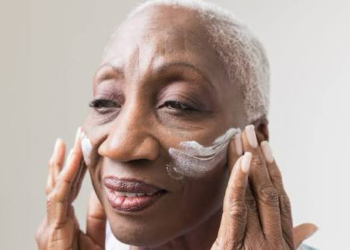Bob, (not real name), was a brilliant third year university student studying medicine. Normal in every respect, he was diligent with his studies and not given to excesses in any form. Nothing seemed amiss until one fateful morning when Bob started shouting uncontrollably and exhibiting some irrational behaviour without any apparent cause. He was eventually calmed down, referred to the emergency unit of a hospital and later taken into the psychiatric ward. Sadly, Bob never made a full recovery and had to drop out of medical school. This is a true story.
This is a story that might resonate with some of us, especially students. The pressures of study, social life, societal pressure, peer pressure and increasingly, social media pressure, can and ofte times have debilitating effects on our mental health. For the older ones in our society, the pressures of finances, parenting, social conformity and even religion can have equally debilitating effects on our sense of wellbeing. These pressures respect no age and the consequences can vary from depression, anxiety, severe mood swings, substance abuse, physical ailments, and in extreme cases, suicide to name just a few.
To protect our general health and our mind in particular from these pressures, we must develop simple coping strategies that will help us keep our mental wellness.
One simple strategy is…TALKING. Talking to others about as many of our concerns as possible and as often as possible has actually been proven to be the most effective strategy to withstanding daily pressures and thereby safeguarding our mental health.
We humans by our very nature are social beings. The evolutionary advantages of being in a group are not limited to just the physical protection that one may enjoy from being a member of a tribe but extends also to the mental protection that results from having constant interaction with others within that group.
The self confessions we sometimes hear such as – “I am antisocial “, “I have no friends “, “I just like being by myself” are actually dangerous anomalies.
A Research by J. Holt-Lunstad, T.B Smith and J. B Layton titled “Social Relationships and Mortality Risk” showed that those who engaged less in social interaction, suffered risks to their health, comparable to smoking 15 sticks of cigarettes a day! In fact the 7.5 years research found that those who engage in social relationships are 50% more likely to survive. In another research conducted by the Department of Psychiatry and Behavioural Sciences, Duke University, which examined the clinical implications of loneliness and social isolation, it was found that there
was a 30% increase in premature deaths from all causes (including heart disease, stroke and suicide) also as a result of low social interaction.
Like Bob, many of us might appear to be living “normal” lives but may in fact be dying slowly both physically and mentally.
“I am a quiet person and I like being by myself”, some say. Well, no matter how quiet you are there should still be at least a couple of people you can talk to and that is all you really need.
Family
With some people, a family member may be their go-to person to discuss such nagging issues. With others it could be someone outside of the immediate family circle. For instance, some daughters may not relate with their mothers as well as nature dictates they should and may find a better listening ear with an aunty. Indeed, it is expected that couples will “discuss everything” together but truth be told, not all things are appropriate to discuss with one’s spouse. However, you must find someone who you feel relatively safe discussing your issues with.
Friends
There are some things that you might feel less comfortable discussing with family. That is why it is important you have a good circle of friends. Peers that you regularly interact with and can quickly discuss burdens and issues with, without the fear of being reprimanded, which is more often than not, experienced in the family setting.
A Professional
In some cases, especially where the issues involved are more disturbing or you simply want to keep your matters private, you can talk to a professional. As a result of their training, professionals such as psychologists and psychiatrists are particularly skilled at putting their patients at ease which helps them to sufficiently open up regarding their issues. Counselors and even some individuals who may be ‘untrained’, but by the very nature of their calling, have become experienced when it comes to the issues of life, can also be helpful people to talk to. Some doctors, religious leaders and even team leads at work fall within this category.
One major advantage in seeking the ear of a professional however is the much higher likelihood of objectivity in helping one navigate the issues and the far less likelihood of being judged or labeled. This could prove to be vitally important in one’s journey to regaining a healthy mental state.
Personally, I have found over the last two or so decades that though I am not a trained psychologist, but by virtue of being a medical practitioner coupled with my many years of counseling others, people feel very comfortable discussing their troubling issues with me and this has enabled me to provide succour by providing them useful counsel.
Bottom line, to safe guard your mental health, please get talking.
___________________________________________________________ ___________
Bankole Sadipe is a medical doctor and an entrepreneur. He runs 21 Medical, a medical consultancy and advocacy group.
Twitter: @bsadipe


















































































 EduTimes Africa, a product of Education Times Africa, is a magazine publication that aims to lend its support to close the yawning gap in Africa's educational development.
EduTimes Africa, a product of Education Times Africa, is a magazine publication that aims to lend its support to close the yawning gap in Africa's educational development.